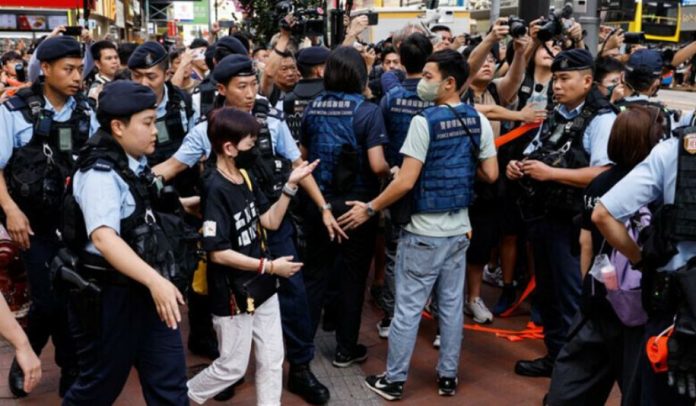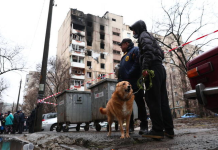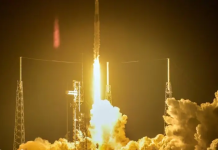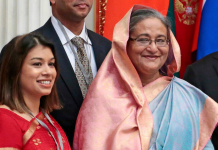Hong Kong police searched and detained scores of people on Sunday, including four arrested for “seditious” intent, as authorities tightened security for the 34th anniversary of the 1989 Tiananmen Square crackdown.
Restrictions in Hong Kong have stifled what were once the largest vigils marking the anniversary of the bloody crackdown by Chinese troops on pro-democracy demonstrators, leaving cities like Taipei, London, New York and Berlin to keep the memory of June 4 alive.
Near Victoria Park, the previous site of yearly vigils, hundreds of police conducted stop and search operations, and deployed armoured vehicles and police vans.
Reuters witnesses saw more than a dozen people taken away, including activist Alexandra Wong, 67, who carried a bouquet of flowers, a man who held a copy of “35th of May”, a play on the Tiananmen crackdown, and an elderly man standing alone on a street corner with a candle.
“The regime wants you to forget, but you can’t forget … It (China) wants to whitewash all history,” said Chris To, 51, who visited the park in a black t-shirt and was searched by police.
“We need to use our bodies and word of mouth to tell others what happened.”
Hong Kong activists say such police action is part of a broader campaign by China to crush dissent in the city that was promised continued freedoms for 50 years under a “one country, two systems” model when Britain handed it back in 1997.
Security is significantly tighter across Hong Kong this year, with up to 6,000 police deployed, including riot and anti-terrorism officers, according to local media.
Senior officials have warned people to abide by the law, but have refused to clarify if such commemoration activities are illegal under a national security law China imposed on Hong Kong in 2020 after sometimes violent mass pro-democracy protests.
In a statement, police said some had been arrested for seditious intent and for “breaching public peace”.
In Beijing, Tiananmen Square was thronged with tourists taking pictures under the watchful eyes of police and other personnel but with no obvious sign of stepped-up security.
A group of relatives called the Tiananmen Mothers said the anguish never ended.
“Though 34 years have passed, for us, family members of those killed, the pain of losing our loved ones in that one night has tormented us to this day,” the group said in a statement released by the New York-based watchdog Human Rights in China.
‘Clear conclusion’
Despite the warnings in Hong Kong, some individuals, including book shop owners, have been quietly marking June 4.
Jailed Hong Kong activist Chow Hang-tung, one of the leaders of a group called The Alliance, which used to organise the June 4 vigils, said on Facebook that she would hold a 34-hour hunger strike.
In mainland China, any mention of the Tiananmen Square crackdown — where troops opened fire on pro-democracy protesters, killing hundreds if not thousands, according to rights groups — is taboo and the subject is heavily censored.
Foreign Ministry spokeswoman Mao Ning, when asked about the government’s response to events around the world to mark the anniversary, said in Beijing on Friday that the government had already come to a “clear conclusion about the political turmoil in the late 1980s”.
In democratically governed Taiwan, the last remaining part of the Chinese-speaking world where the anniversary can be marked freely, hundreds attended a memorial at Taipei’s Liberty Square where a “Pillar of Shame” statue was displayed.
Peggy Kwan, 57, an interpreter at the event, expressed sadness at the stifling of commemorations in Hong Kong.
“Hong Kong is moving backward,” she said.
China claims Taiwan as its own and has not renounced the use of force to ensure eventual unification. Taiwan Vice President William Lai, the ruling Democratic Progressive Party’s presidential candidate in an election next January, wrote on his Facebook page that the memory of what happened in Beijing in 1989 must be preserved.
“The event commemorating June 4 has continued to be held in Taipei, which shows that democracy and authoritarianism are the biggest differences between Taiwan and China,” he said.
In Sydney, one of over 30 places in North America, Europe and Asia hosting commemoration events, dozens of demonstrators rallied at the Town Hall, chanting “free Hong Kong”, while holding up yellow umbrellas, the symbol of pro-democracy protests since 2014, and placards.

















